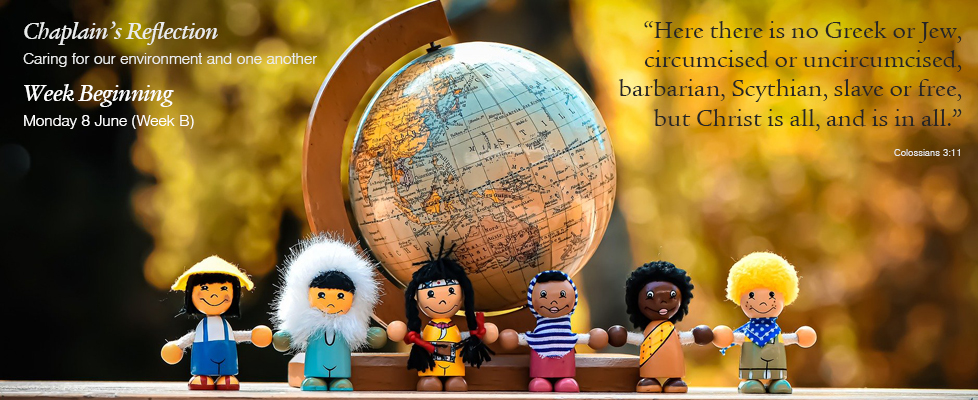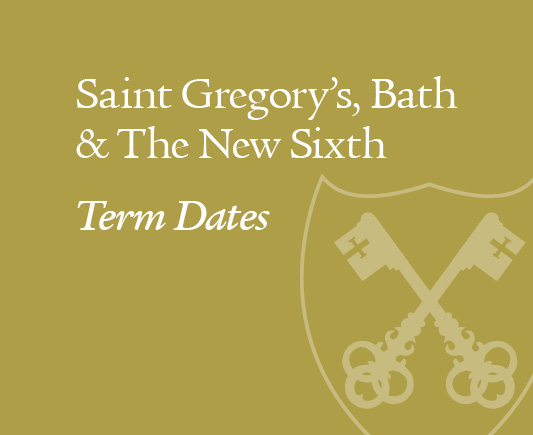The last few days have been some of the most tragic and emotive in recent history in relation to racial injustice and inequality. It’s been thoroughly heartbreaking to see the pain caused to George Floyd in that awful video clip.
It’s been painful to see the reality of suffering that people of other races must face on a regular basis. It’s been disappointing and wrong to see peaceful protests turned upon or descending into looting and violence. The evil of racism has truly come to the fore, it’s the first story on every news item now, the first video clip on social media accounts, the first topic on the tip of our tongues. The question is why though? The 20th century was marred by the most horrific racism, xenophobia and hatred – Nazi Germany, Racial segregation in the US and other places and the apartheid are testament to this. It also brought us some of the greatest voices to stand against injustice and to unite people – Martin Luther King, Rosa Parks, Nelson Mandela, Ghandi to name a few. I believe almost every one of our young people will know who all these people are, why they’re so important and admire them for it. So, did racism every truly stop? Are there still levels of institutionalised racism that marr entire nations? How can we be a part of the solution?
One of the most ironic encounters of the last couple of days involved Donald Trump visiting the St John Paul II memorial, the day after his abhorrent photo opportunity outside a local Church. We are told that it was a pre-arranged visit, and many religious leaders were hopeful that the President would take note of powerful words and example of St John Paul II, one of the most peaceful and gracious advocates of harmony amongst all people in the 20th century. When the Pope visited America in 1995 to deliver a speech at the 50th General Assembly of the United Nations, he spoke extensively on the issue of freedom, rights and love.
Men and women throughout the world, even when threatened by violence, have taken the risk of freedom, asking to be given a place in social, political and economic life which is commensurate with their dignity as human beings…In this sense, it is a matter for serious concern that some people today deny the universality of human rights, just as they deny there is a human nature shared by everyone.
As a Christian, my hope and trust are centred on Jesus Christ…We Christians believe that in his Death and Resurrection were fully revealed God’s love and his care for all creation. Jesus Christ is for us God made man, and made a part of the history of humanity. Precisely for this reason, Christian hope for the world and it’s future extends to every human person.
The answer to the fear which darkens human existence at the end of the twentieth century is the common effort to build the civilisation of love, founded on the universal values of peace, solidarity, justice and liberty.”
Our faith as Christians, As St John Paul II says, is one of love and of a relationship between God as creator with every human being on this plane. Christianity is a symbol of inclusivity and belonging for everyone. There is no place for hating your neighbour, no place for decide another person or race is beneath you. There is no barrier in colour, sex, race, nation. This very concept is perfectly explained by St Paul in his letter to the Colossians, “Here there is no Jew or Greek, circumcised or uncircumcised, barbarian, Scythian, slave or free, but Christ is all, and is in all.” (Col 3:11). If Jesus wanted to form a small and more liberal form of Judaism in Israel, he could have. But that is not even close to what he did. He opened up understanding and belief systems, blew apart prejudice and hatred, trampled upon accepted injustice and then sent out his closest followers to ensure message of hope and love was shared with every person in every nation of the world. The speech referenced above is a true masterclass from St John Paul II in bridging the universal values of the United Nations with the heart of our Christian faith. The full speech is over an hour long but well worth a watch online still.
 Fast forward twenty five years to 2020 and what are we hearing from our religious leaders? Pope Francis spoke in his General Audience this week saying, “We cannot tolerate or turn a blind eye to racism and exclusion in any form and yet claim to defend the sacredness of life.” Our Own Bishop Declan on behalf of the Catholic Bishop’s of England and Wales said “As Catholics we must recognize that racism is an evil which must be opposed; we all have a responsibility for actively promoting racial justice.” Another Christian perspective from Archbishop’s Welby and Sentamu in the Church of England speak of “God’s justice and love for all creation demands that this evil is properly confronted and tackled. Let us be clear: racism is an affront to God. It is born out of ignorance, and must be eradicated. We all bear the responsibility and must play our part to eliminate this scourge on humanity.” The overriding messages that continue to jump out reference our collective responsibility to rid the world of an evil that has no place in God’s beautiful world. A reminder that we cannot stand by and allow this to continue.
Fast forward twenty five years to 2020 and what are we hearing from our religious leaders? Pope Francis spoke in his General Audience this week saying, “We cannot tolerate or turn a blind eye to racism and exclusion in any form and yet claim to defend the sacredness of life.” Our Own Bishop Declan on behalf of the Catholic Bishop’s of England and Wales said “As Catholics we must recognize that racism is an evil which must be opposed; we all have a responsibility for actively promoting racial justice.” Another Christian perspective from Archbishop’s Welby and Sentamu in the Church of England speak of “God’s justice and love for all creation demands that this evil is properly confronted and tackled. Let us be clear: racism is an affront to God. It is born out of ignorance, and must be eradicated. We all bear the responsibility and must play our part to eliminate this scourge on humanity.” The overriding messages that continue to jump out reference our collective responsibility to rid the world of an evil that has no place in God’s beautiful world. A reminder that we cannot stand by and allow this to continue.
Which brings us to the problem of violence and looting as a protest response. To be fair, the story of Jesus losing his temper in the temple does come back to bite us on the backside a little in situations like this: “Jesus entered the temple courts and drove out all who were buying and selling there. He overturned the tables of the money changers and the benches of those selling doves” (Matthew 21:12). But when looked at in context a little more, Jesus was challenging the way a house of prayer had been turned into a profit-making business, and he didn’t harm anyone. Each of the above Christian leaders also refer to the violence and understandable anger that is present. But discourage violence and looting as opposed to peaceful protest “We have to recognise that the violence of recent nights is self-destructive and self-defeating. Nothing is gained by violence and so much is lost.” George Floyd’s brother knelt on the streets of Minneapolis earlier this week in front of large crowds, and through tears pleaded for an end to rioting and violence “They will not bring my brother back.” There is a huge difference between standing up for the rights of other people and yourself and causing pain to more people through rioting and violence.
 A group of people in America who included the National Association of Criminal Defense Lawyers, relatives of other victims of Racism, foundations and the musician Jay-Z released an excerpt from one of Martin Luther King’s speeches in 1965. Whilst being typically powerful and emotive, as well as encouraging people to stand up and protest, it doesn’t advocate violence:
A group of people in America who included the National Association of Criminal Defense Lawyers, relatives of other victims of Racism, foundations and the musician Jay-Z released an excerpt from one of Martin Luther King’s speeches in 1965. Whilst being typically powerful and emotive, as well as encouraging people to stand up and protest, it doesn’t advocate violence:
A man dies when he refuses to stand up for that which is right. A man dies when he refuses to stand up for justice. A man dies when he refuses to take a stand for that which is true. So, we’re going to stand up amid anything they can muster up, letting the world know that we are determined to be free!”
A voice I particularly respect the opinion of in the Church in America is the Cardinal Archbishop of New York, Timothy Dolan, who always comes across as a humble, witty and balanced individual who ‘gets it’ with most things. He is the chair of the Commission of Religious Leaders in America which includes representatives of all the Abrahamic religions. They made a point of referencing an interesting quote from scripture as a response to George Floyd’s death:
“The Book of Ecclesiastes teaches us, ‘There is a time to be silent and a time to speak out.’ We of different faiths cannot remain silent after we watched the shattering video of a police officer keeping his knee on the neck of George Floyd who was crying out ‘I can’t breathe.’ Such inhumane treatment of another human being requires a collective response from all people of conscience. The pursuit of justice is a fundamental tenet of our respective religious traditions, and thus we stand together to declare that all life is sacred, and all people are equal before the law in a democratic society.
We respect those who want to honour George Floyd’s memory with peaceful protest against the horror, evil, and sin that is racism. We also support the members of Floyd’s family who said, in part, “We cannot endanger each other as we respond to the necessary urge to raise our voices in unison and in outrage. Looting and violence distract from the strength of our collective voice.”
We often speak of “thoughts and prayers.” We will offer our many prayers of healing, but we need not only serious thoughts but also firm action as we work together with all members of our community to find that critical cure for human hatred.
I spoke only a week ago in my reflection at length about what it means to be a Christian, full of conscience, love of neighbour and treating one another with love. Particularly exploring the LaSallian spiritual meaning of God being present in our hearts and driving our actions. Recalling two of the LaSallian core principles which we declare are at the heart of our school, enshrine how we feel about the current global problem of racism – ‘Inclusive community’ & ‘respect for all persons’. If the evil of racism can only be eradicated by action from the people of God, then so we should be addressing that in our schools and in our individual lives. We can hopefully all declare “Well I’m not a racist though!” but pulling apart the root causes of racism comes up with a few ways of reflection that feed into wider society.
Inaction – bystanders, videoing, watching and commenting afterwards. Not just something that has been seen in the other officers, but is so often a way that permeates other aspects of lives around the globe today. How do I respond to inaction around me? How can I get involved in something that isn’t my business, or should I still be speaking up?
Being Stifled – this is not the first time a black man has cried out “I can’t breathe.” Or “I’m choking to death”. Voices and the very breath of life given to humanity is taken away by one who has no right to do so. But how also are people around us each day stifled? Who is ignored, not allowed to speak up? When people feel prejudice or bullied, how must they be feeling? Being put down and ignored, stifled and treat like they have no worthy input?
Sacredness of life – The Bible tells us that God breathes life into each one of us, he calls us by name, numbers every hair upon our head. Life is the most sacred of all things, and we believe that another person has no right to take that away. In this most recent case, Mr Floyd was innocent of the crime he was accused of, and there is no justification whatsoever for the excess of force and disregard for the sacredness of life shown towards him. Pope Francis’ words spoke of not being able to turn a blind eye to racism yet claim to defend the sacredness of life. Do we look at every person and respect that they are as sacred as ourselves? What level of tolerance do we witness before we feel it’s wrong?
Let us be challenged to use our voices for good and allow the Spirit of God to move us to action. The conscience is powerful and the greatest of friends. What is becoming clearer is that inaction should no longer be an action, if we are to profess our faith as Christians we must look reflect on all aspects of our own lives. The buzz words of Christianity – Love, hope, peace, equality, must also drive us in other ways every day of our life. As Hebrews proclaims, “The Word of God is alive and active” (Heb 4:12).
Mr M Robinson
Lay Chaplain




